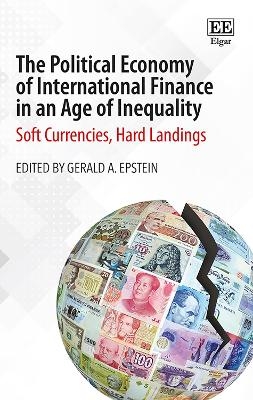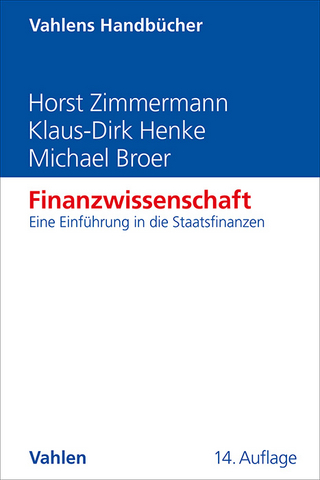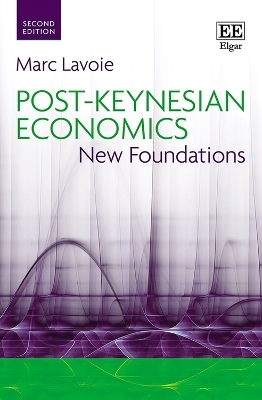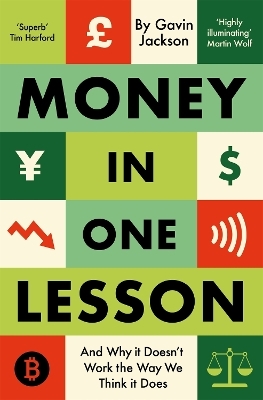
The Political Economy of International Finance in an Age of Inequality
Edward Elgar Publishing Ltd (Verlag)
978-1-78897-262-8 (ISBN)
'The thoroughgoing disaster inflicted on the global economy in 2008 by the gambling of the financial system should have resulted serious sanctions for financial actors and the jettisoning of any belief in the efficacy and fairness of the neoliberal regime. But the tepid action of policy makers has allowed the system to muddle through and undermined any remaining trust and faith among the polity. It is not hard to see the breakdown of political stability across the world in the last two to three years as resulting direct from the justified belief that the rules of the global economy favor the very few.
In this book, a group of critical scholars painstakingly identify and illuminate key aspects of the global financial system that continue to reinforce global inequalities of power and that contribute to dangerous political and economic instability. Through a series of thorough case studies ranging from the macroeconomic instability engendered by untrammeled capital flows, to the way sovereign debt restructuring favors northern creditors, to the hierarchy of the monetary system that concentrates enormous power in the hands of a few central banks, these studies throw light on the ways global financial neoliberalism and political and social power work to undermine macroeconomic stability and social justice. It will be read by serious scholars of the political economy of finance with great interest.'
- Arjun Jayadev, Azim Premji University, India and Institute for New Economic Thinking
The essays in this book describe and analyze the current contours of the international financial system, covering both developed and developing countries, and focusing on the ways in which the current international financial system structures and is affected by profound inequalities in the international system. This keen analysis of key topics in international finance takes a heterodox perspective, with focus on the role of inequalities in power in shaping the structure and outcomes in the international sphere.
The Political Economy of International Finance in an Age of Inequality begins with a discussion of capital flows and financial crisis, moves into an up-to-date discussion of the political economy of currency unions, and then focuses on analysis of capital flows and economic crises. New and established academics present a broad variety of special case studies within that general framework focusing on understudied yet important up to date cases from understudied regions and countries for a unique and important exploration of the field.
This book will be of interest to students and specialists in international finance, who will benefit from the combination of the strong general framework and illustrative case studies. Its approach will appeal both to generalists and specialists.
Contributors include: M. Arora, E. Braunstein, H. Comert, D. Dutt, N. Eichacker, G. Epstein, I. Grabel, S. Khalil, M. Majd, F. Perez, L.D. Rosero, Z. Ybrayev
Edited by Gerald A. Epstein, Professor of Economics and Co-Director, Political Economy Research Institute (PERI), University of Massachusetts-Amherst, US
Contents:
1. Introduction
Gerald A. Epstein
Part I Capital Flows and Financial Crises
2. Financial Crises Among Emerging and Developing Economies in the Modern Era: A Brief History and Some Stylized ThemesElissa Braunstein
3. Too Good to Be True: What the Icelandic Crisis Revealed About Global Finance
Nina Eichacker
4. Reanalyzing the gender-specific effects of the Great Recession
Sana Khalil
Part II Managing International Capital Flows: Costs and Dilemmas
5. Capital Controls In a Time of Crisis
Ilene Grabel
6. Easing the Trilemma through Reserve Accumulation? The Latin American CaseLuis D. Rosero
7. The Costs of Foreign Exchange Intervention: Trends and Implications
Devika Dutt
8. Monetary Policy under Financial Dollarization: The Case of Eurasian Economic Union Zhandos Ybrayev
Part III Power Relations in the International Financial System: Global and Regional Dimensions
9. The Cost of a SWIFT Kick: Estimating the Cost of Financial Sanctions on Iran
Mariam Majd
10. Changing Rules of the Game of Global Finance: Glimpses from the Argentina's Sovereign Debt RestructuringMohit Arora
11. Solidarity vs. Similarity: The Political Economy of Currency UnionsFrancisco Perez
12. International Financial Flows and the Future of EU-Turkey Relations
Hasan Cömert
Index
| Erscheinungsdatum | 05.12.2018 |
|---|---|
| Verlagsort | Cheltenham |
| Sprache | englisch |
| Maße | 156 x 234 mm |
| Themenwelt | Wirtschaft ► Volkswirtschaftslehre ► Finanzwissenschaft |
| Wirtschaft ► Volkswirtschaftslehre ► Makroökonomie | |
| Wirtschaft ► Volkswirtschaftslehre ► Wirtschaftspolitik | |
| ISBN-10 | 1-78897-262-7 / 1788972627 |
| ISBN-13 | 978-1-78897-262-8 / 9781788972628 |
| Zustand | Neuware |
| Haben Sie eine Frage zum Produkt? |
aus dem Bereich


